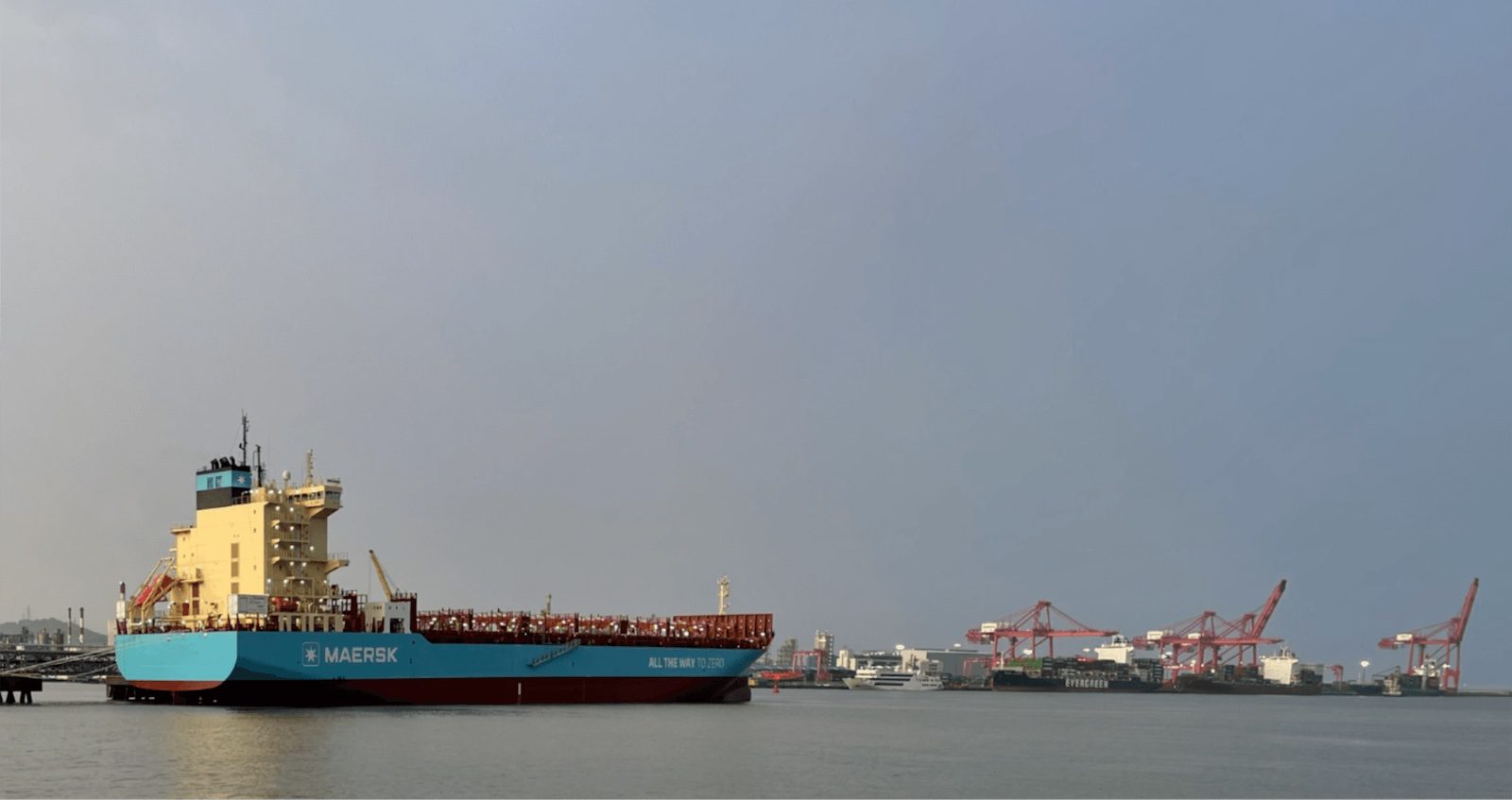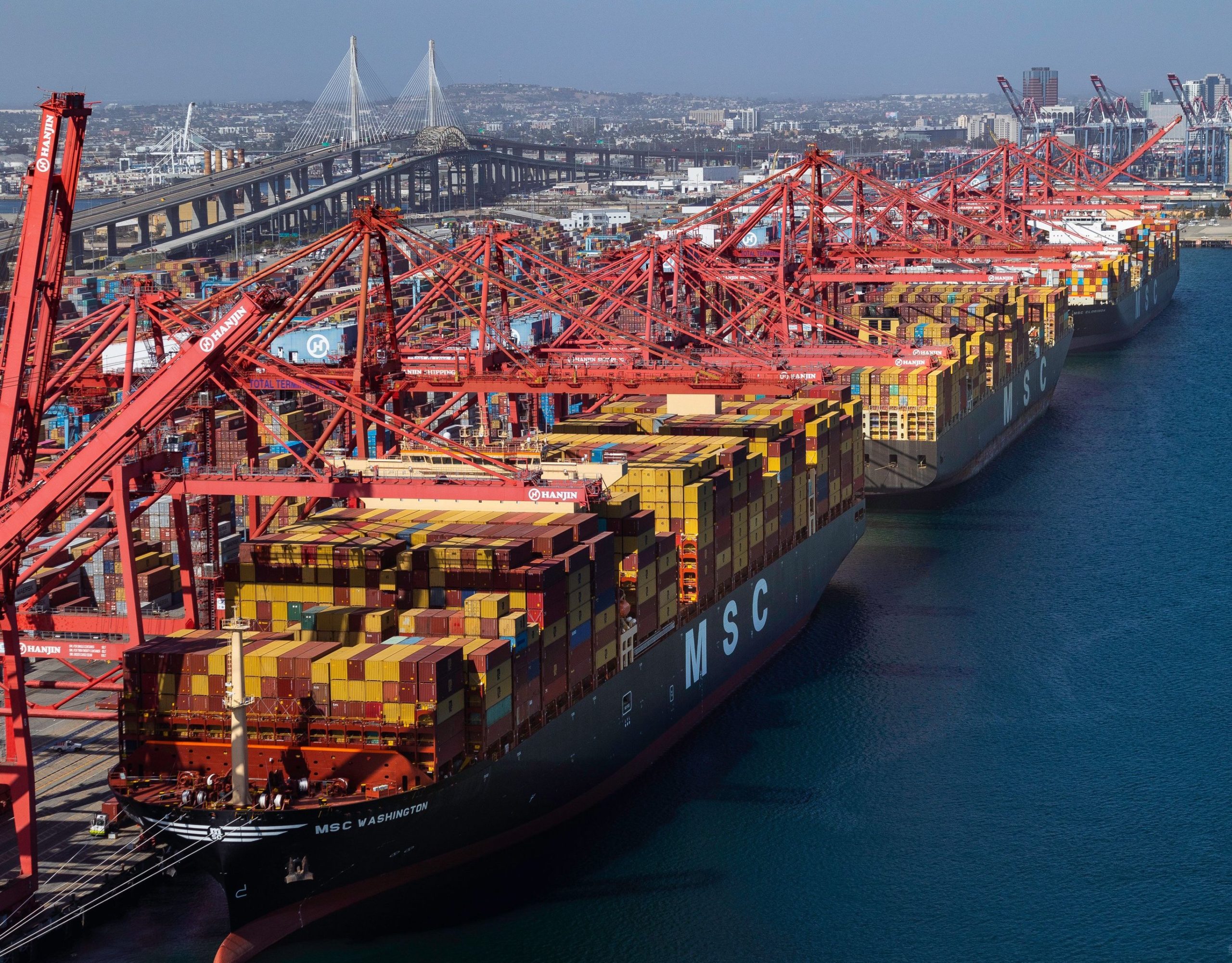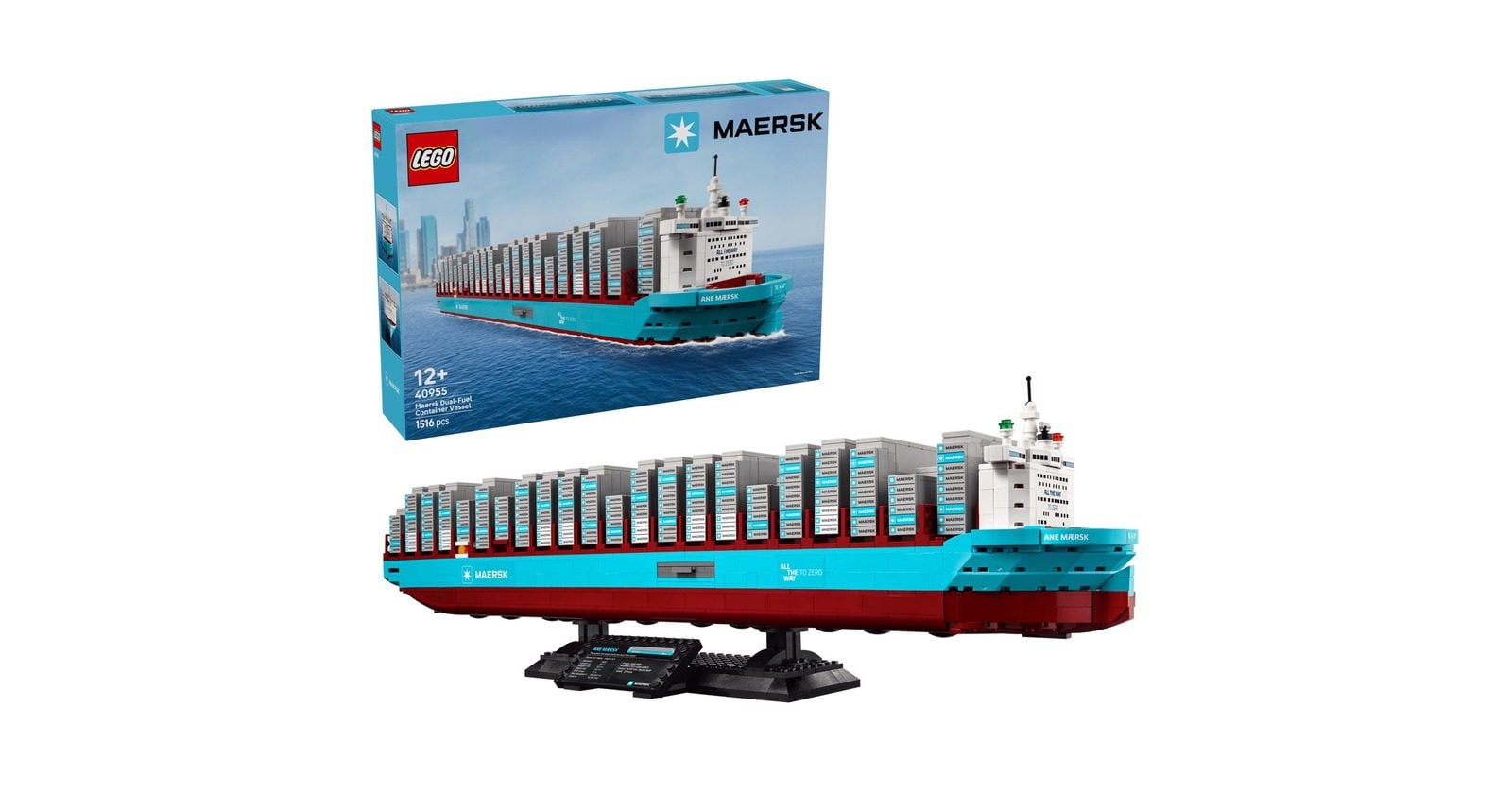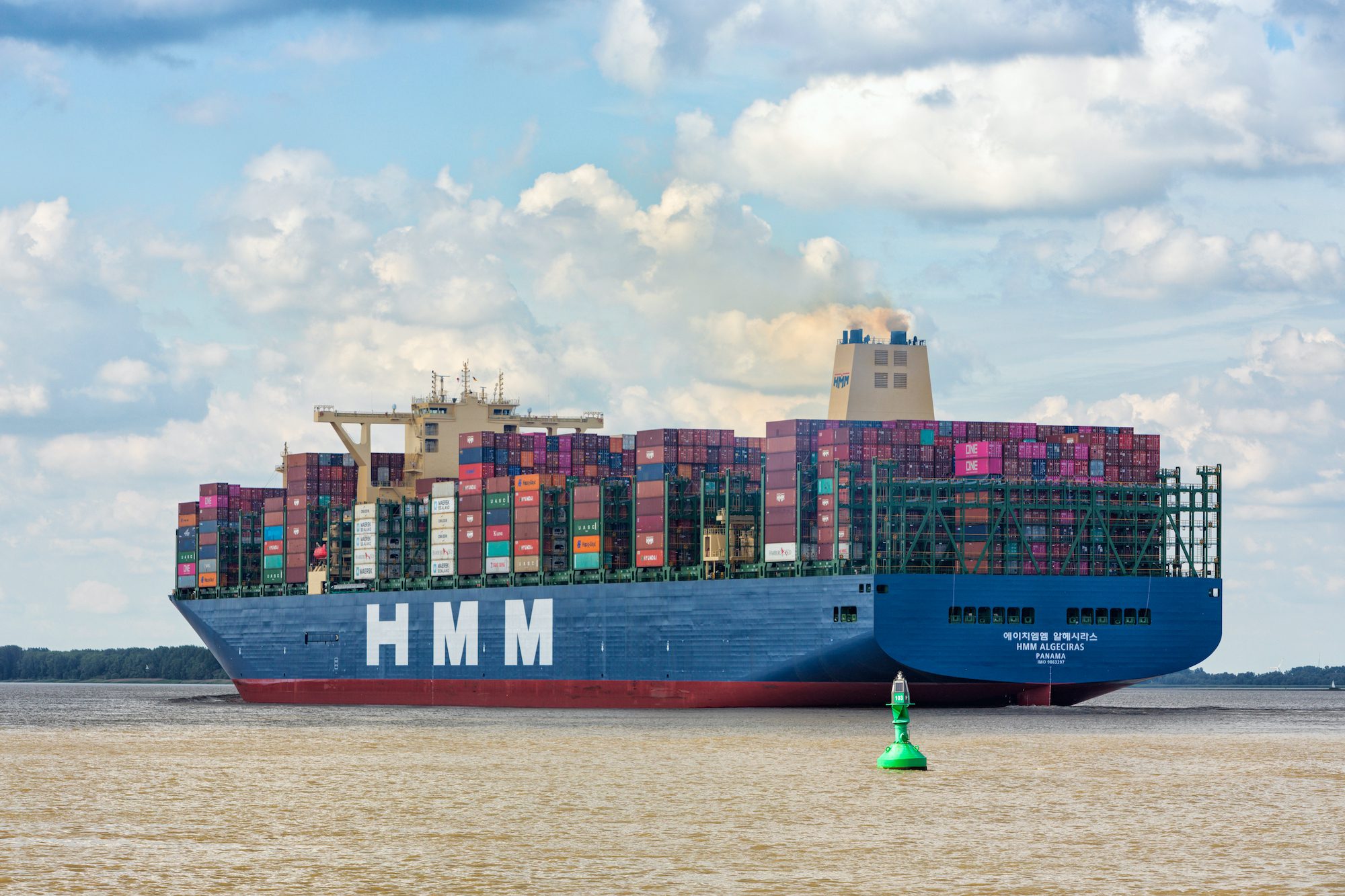The world’s first methanol-powered containership has fueled up on green methanol bunkers on Ulsan, South Korea, before departing on its maiden voyage.
Maersk’s new ship was delivered earlier this month from Hyundai Mipo Dockyard. With a capacity of 2,100 TEU capacity, the 172-meter feeder ship will be operated in the Baltics between Northern Europe and the Bay of Bothnia.
Odfjell Terminal Korea (OTK) said it supplied the vessel with 1,000 tonnes of green methanol on July 16 in Ulsan, marking the world’s first green methanol bunkering.
“We congratulate Maersk on this important milestone, and are proud to be the first terminal to successfully supply green methanol bunkering to this unique vessel,” said OTK’s CEO, Joseph Kim. “Over the past months, there have been business reviews and technical efforts on safe and successful methanol bunker supply models. We expect these results to be the cornerstone of the methanol bunkering business moving forward.”
AIS showed the vessel, unofficially named Laura Maersk, departed Ulsan on Monday, July 17, on its maiden voyage to Copenhagen, where she will be officially named in September.
Maersk last month announced it had secured the ISCC certified green biomethanol for the ship’s maiden voyage from OCI Global (Euronext: OCI).
“The successful bunkering is a testament to the collaboration of all the partners involved and we look forward to fueling more journeys on green methanol from now on,” said Ahmed El-Hoshy, CEO of OCI Global.
The feeder vessel is the first of 25 methanol dual-fuel engine ships to come from Maersk. The next ships will be much larger, with 18 of the vessels ranging from 16,000-17,000 TEUs and six coming in at 9,000 TEUs. Deliveries are schedule between 2024 and 2027.
Maersk has set ambitious goal of becoming carbon neutral by 2040, which is a decade ahead of most other companies in the sector. The company has also set nearer-term targets that call for a 50% reduction in greenhouse gas emissions intensity from its ocean fleet and a 70% reduction in absolute emissions from its fully controlled terminals by 2030.
“This journey is an important step in our efforts to reach net zero greenhouse gas emissions by 2040, as it will allow us to gain the necessary operational experience with the new engines and fuel ahead of the arrival of our larger methanol-enabled vessels in the coming years,” said Morten Bo Christiansen, Head of Energy Transition, A.P. Moller-Maersk.
Green methanol can reduce Sulfur Oxides (Sox), Nitrogen Oxides (NOx) and Particulate Matter (PM) emissions by more than 95%, and NOx by up to 80% compared to conventional marine fuels, and can be carbon neutral on a lifecycle basis.
“We will continue to expand our expertise in decarbonization and eco-friendly fuel supply chain businesses as part of our role as a key hub terminal in Northeast Asia. We look forward to welcoming more energy-efficient and greener fuel vessels in the years to come. In the meantime, we wish the pioneer ship and crew all the best on this historic maiden voyage,” added OTK’s CEO, Joseph Kim.
Editorial Standards · Corrections · About gCaptain

 Join The Club
Join The Club











